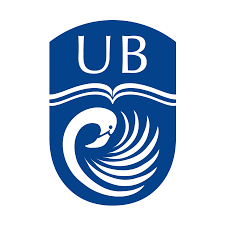‘None but Ourselves Can Free Our Minds’: Review of "A Community Life: Memoirs of Alfred M. Sears"
DOI:
https://doi.org/10.15362/ijbs.v23i0.290Keywords:
Colonialism, Post-Colonialism, Bahamas Nationhood, Bahamas Identity Politics, AutobiographyAbstract
Review of A Community Life: Memoirs of Alfred M. Sears: A Redemption Story from Reform School to Attorney General and Minister of Education of the Bahamas, Alfred M. Sears. I-EASE Publishack, 2017. ISBN 978-978-8201-14-4 This emotionally charged testimonial to life in the historical colonial and postcolonial Bahamas is a deeply politicized story of personal and political redemption built on Alfred Sears’ decades-long commitment to literacy and education, to the value of family and community and to the practice of speaking truth to power. Sears argues that both the health of Bahamian society and the sovereignty of the nation are dependent on its citizens being able to think for themselves and for that to happen, it is imperative to root out the legacies of colonialism. He makes recommendations for altering the Bahamian Constitution and thematically addresses concerns about government corruption, transparency, and accountability; partisan polarization; the Bahamian politic as a system of patronage and clientelism; the need for constitutional reform; political campaign finance reform; sustained economic development and participatory regionalism.References
Craton, M., & Saunders, G. (2000). Islanders in the stream: A history of the Bahamian people, Vol. 2: From the ending of slavery to the twenty-first century. University of Georgia Press.
Curry, C. (2017). Freedom and resistance: A social history of Black Loyalists in the Bahamas. University Press of Florida.
Girvan, N. (2015). Assessing Westminster in the Caribbean: Then and now. Commonwealth & Comparative Politics, 53(1), 95-107. https://doi.org/10.1080/14662043.2014.993162
Hall, S. (2017). Familiar stranger: A life between two islands. Allen Lane.
Harrison, B. (1996). Every picture ‘tells a story’: Uses of the visual in sociological research. In E. S. Lyon & J. Busfield (Eds.), Methodological imaginations (pp. 75-94). Macmillan.
Hinds, D. (2008). Beyond formal democracy: The discourse on democracy and governance in the Anglophone Caribbean. Commonwealth & Comparative Politics, 46(3), 388-406. https://doi.org/10.1080/14662040802176558
Johnson, D. (1972). The quiet revolution in the Bahamas. Family Islands Press.
Lamming, G. (2002, October 23). Sea of stories. The Guardian. https://www.theguardian.com/books/2002/oct/24/artsfeatures.poetry
Marley, B. (1980). Redemption song. http://www.azlyrics.com/lyrics/bobmarley/redemptionsong.html
McCartney, T. O. (1974) What is the relevance of Black power to the Bahamas? In O. Orde (Ed.), Black moods in the Caribbean: Is massa day dead? (pp. 165-186). Doubleday.
Nussbaum, M. C. (2013). Political emotions: Why love matters for justice. Harvard University Press.
Parry, B. (2004). Postcolonial studies: A materialist critique. Routledge.
Ryan, S. D. (1999). Winner takes all: The Westminster experience in the Caribbean. University of the West Indies Press.







